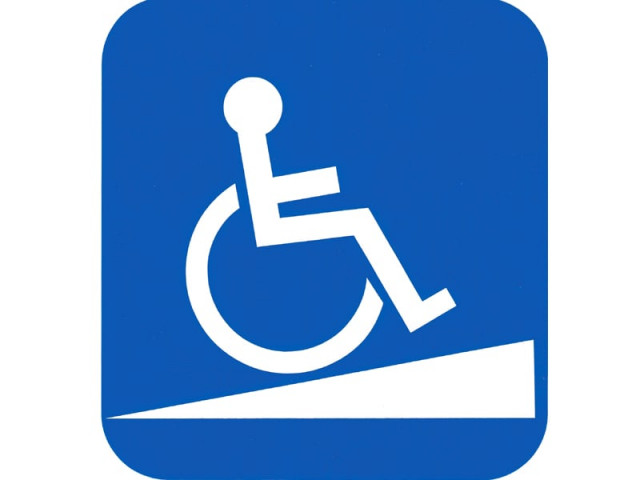Marginalising the disabled: Lack of facilities discouraged PWDs from casting votes
In some instances polling booths were inaccessible, no wheelchairs were available.

We utilised our own resources and made model polling stations for the disabled. We built ramps and brought wheelchairs to assist PWDs, says Society for Special Persons President. PHOTO: FILE
The Election Commission of Pakistan (ECP) violated its strategic goal by not making polling stations accessible to persons with disabilities (PWDs) across the country, depriving them of their legal right to vote due to which their turnout remained less than one per cent.
Civil society representatives who observed elections from a disability perspective told The Express Tribune that before the general election 2013 the ECP had assured them that all polling stations would be made accessible to PWDs under its strategic goal number 14, “Marginalised Groups including Women, Minorities and Persons with Disabilities” aimed to ensure their participation in the electoral process.
They said the majority of polling booths lacked facilities such as wheelchairs, ramps and staff to assist persons with sight or hearing impairment.

Zulqarnain Asghar, advocacy and communications manager at Initiative for Raising Awareness, Development and Assimilation of the Handicapped said a polling booth was established on the first floor of Asif Public School, Rawalpindi in NA-52 which was inaccessible for PWDs.
Another polling booth set up in Aisha Lasani Model School Rawalpindi had no ramp and a polling station set in Asir Public School was located in a very congested place where it was difficult to move about in a wheelchair.
Sharing his experience, he said the returning officer at Asif Public School was not aware of the special computerised national identity cards for PWDs. “Some PWDs who were first-time voters were deprived of their right due to lack of facilities,” he said.
Special Talent Exchange Programme (STEP) President Atif Sheikh said his team visited polling booths established in some areas of G-Sector and observed that they were all inaccessible to PWDs.

He said STEP in collaboration with other NGOs formed a team of 80 people who all were suffering with various forms of disabilities and observed the election process at 139 polling stations from a disability prospective in 15 districts.
Society for Special Persons President Zahida Qureshi, who is based in Multan, said, “We utilised our own resources and made model polling stations for the disabled. We built ramps and brought wheelchairs to assist persons with physical disabilities.” She said none of the polling booth she and her team visited were disabled-friendly.
Published in The Express Tribune, May 15th, 2013.



















COMMENTS
Comments are moderated and generally will be posted if they are on-topic and not abusive.
For more information, please see our Comments FAQ